Posted on 11/28/2024
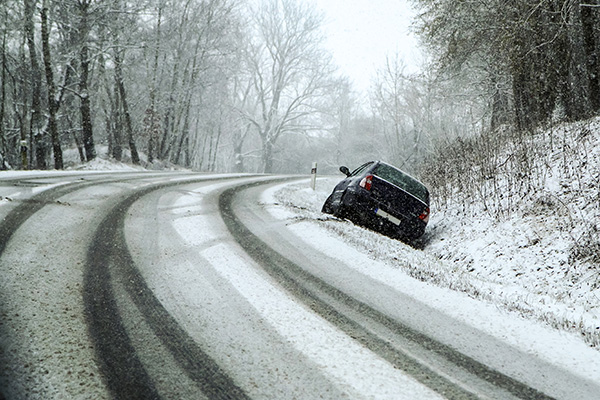
Winter brings its fair share of challenges, and for many drivers, few things are more frustrating than getting stuck in the snow. Whether it happens in your driveway or on a remote road, it’s a situation that calls for quick thinking and careful action. But don’t worry—there are practical steps you can take to free your car and get back on your way safely. Stay Calm and Assess the Situation When your car is stuck in the snow, the first step is to stay calm. Panic can lead to hasty decisions that might make the situation worse. Take a moment to assess your surroundings and determine how deeply your car is stuck. Is it just the tires spinning, or is the undercarriage lodged in the snow? Knowing the extent of the issue will help you decide on the best approach. Clear Snow Around the Tires Once you’ve assessed the situation, start by clearing snow away from your tires. If you have a snow shovel in your trunk, use it to remove as ... read more
Posted on 10/31/2024
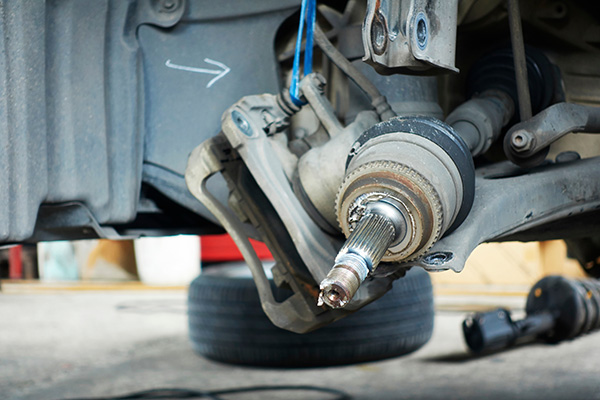
Your car’s axles might not get as much attention as other components, but they are keeping your vehicle moving. The axles transfer power from your transmission to the wheels, allowing your car to drive. Axles wear out over time. You might be wondering, “Can driving with worn axles damage my car?” The short answer is yes, and it could lead to serious consequences. Understanding the risks and signs of worn axles can help prevent more extensive damage to your vehicle and ensure your safety on the road. Why Worn Axles Are a Big Deal Axles bear the weight of your car and endure a lot of stress as you drive, especially when turning or going over uneven terrain. Over time, the constant force and pressure can cause wear and tear, which might not be obvious at first. However, continuing to drive on worn axles can lead to several major problems that you defi ... read more
Posted on 9/30/2024

You might not think about your car’s air quality until the air starts smelling stale or causing discomfort during your drives. However, the air inside your car can impact your health and overall driving experience, especially if it's filled with pollutants, allergens, or unpleasant odors. Maintaining clean, fresh air inside your vehicle isn’t just a matter of comfort—it’s essential for your well-being. So, how can you improve your car’s air quality and ensure a healthier environment on the road? Replace Your Cabin Air Filter Regularly One of the most effective ways to improve the air quality inside your car is by regularly replacing your cabin air filter. This filter works hard to trap dust, pollen, mold spores, and other contaminants before they enter the car’s interior through the air conditioning and ventilation system. Over time, the filter gets clogged, reducing its effectiveness and allowing allergens and debris to circul ... read more
Posted on 8/27/2024
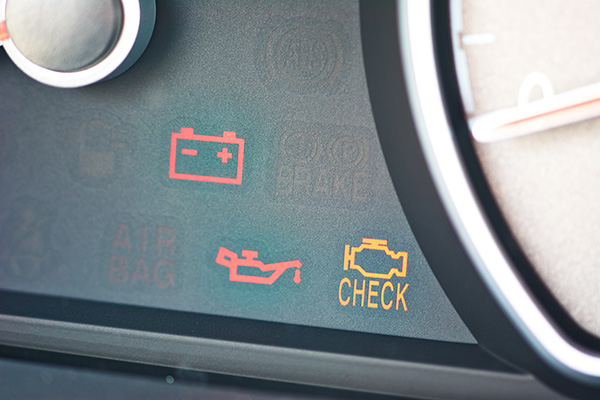
When the battery light suddenly appears on your dashboard, it can be quite startling. It's a warning signal that requires prompt attention, but what exactly does it indicate? Knowing the reason behind this light can prevent a breakdown and ensure you don't get stranded on the side of the road. The Battery Light Warning The battery light on your dashboard is not just a random warning; it's your vehicle's way of communicating a problem related to the charging system. This light typically features a battery icon and may come on for a few reasons, indicating that something in the electrical system needs attention. When the light is illuminated, it usually means that the car's battery is not being charged properly, which can affect the performance of your vehicle. Common Reasons for the Battery Light to Appear1. Faulty Alternator The alternator is responsible for charging the car's battery and powering the elect ... read more
Posted on 7/29/2024
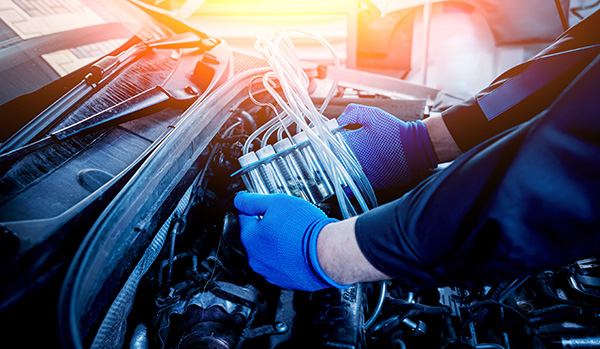
Is your car acting weird and operating with reduced power? One likely culprit could be a failing fuel pump. This crucial component ensures your engine gets the fuel it needs to run. But when it starts to fail, it can wreak havoc on your driving experience and, in some cases, leave you stranded on the side of the road. Let's dive into the telltale signs of a failing fuel pump and how you can spot them before you're left stranded. 1. Difficulty Starting the Engine One of the first signs that your fuel pump might be on the fritz is trouble starting your car. If you turn the key and the engine cranks but doesn't start immediately, it could be because the fuel pump isn't delivering enough fuel to get things going. This can be especially noticeable when the car has been sitting for a while, such as overnight. The engine needs a steady supply of fuel to ... read more
Posted on 6/28/2024

Have you ever dreamed of leaving the hustle and bustle of daily life behind and embarking on an epic adventure through rugged terrains? Overlanding combines the thrill of off-roading with the joy of camping, allowing you to explore remote destinations while being self-sufficient. However, to make the most out of your overlanding journey, having the right gear is crucial. Let's dive into the essentials that will ensure your off-road camping adventure is safe and enjoyable. Why Overlanding Captivates Enthusiasts Overlanding is more than just a trip; it's a lifestyle that brings you closer to nature and challenges your self-reliance. Unlike traditional camping or road trips, overlanding often involves traveling to uncharted territories with scarce amenities. This means your vehicle becomes your mobile home, and being well-prepared is vital for a successful jour ... read more
Posted on 5/31/2024
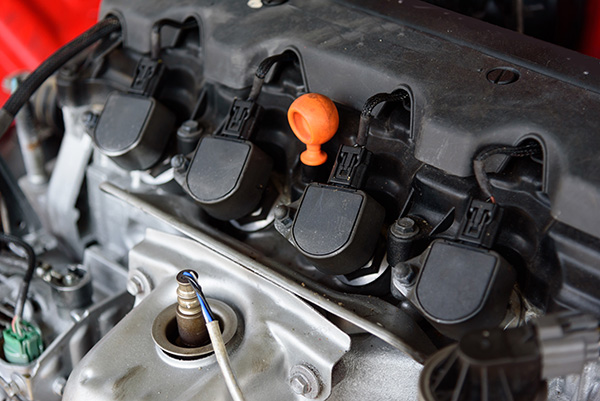
When it comes to vehicle maintenance, some issues are more critical than others. One component that often flies under the radar until it's too late is the ignition coil. This small but mighty part plays a crucial role in your car's performance, converting the battery's voltage into the high voltage needed to ignite the fuel. But how do you know when your ignition coil is failing? Let's explore the signs and what to do if you suspect a problem. Common Symptoms of a Bad Ignition Coil Recognizing the early signs of a failing ignition coil can help you address the issue before it becomes a bigger problem. Here are the most common symptoms to watch out for: 1. Engine Misfires and Rough Idling One of the first signs of a bad ignition coil is engine misfires. If your engine is misfiring, you might notice a jerking motion while driving ... read more
Posted on 4/29/2024
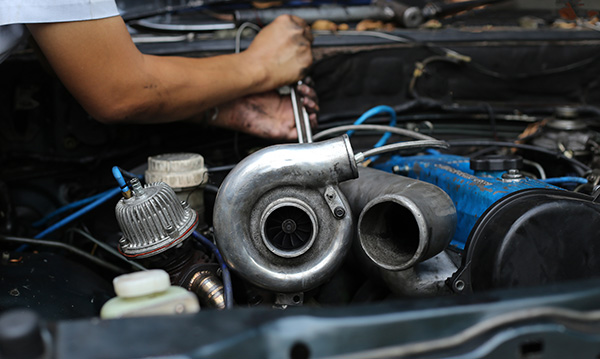
In automotive engineering, turbochargers are marvels of modern technology, elevating engine performance and efficiency to new heights. However, like any intricate machinery, turbochargers are prone to malfunctions that impede performance and reliability. We embark on a journey to solve the mysteries of turbocharger problems and address these issues effectively. The Basics of the Turbocharger Turbochargers operate on the principle of forced induction, utilizing exhaust gasses to spin a turbine connected to a compressor. This compressor pressurizes the intake air, allowing for greater power output from the engine. However, this intricate process can be disrupted by many factors, leading to a range of symptoms that signal underlying issues. Symptoms of Turbocharger Problems One of the first steps in troubleshooting turbocharger issues is recognizing the symptoms that indicate potential problems. While the manifestation of these symptoms may vary depen ... read more
Posted on 3/29/2024
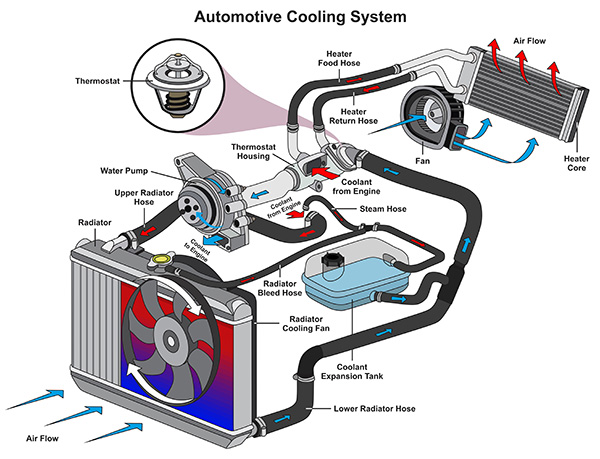
Are you tired of sweating over unexpected car troubles? Your vehicle's cooling and connected systems are crucial in keeping your engine running smoothly and preventing costly breakdowns. The Importance of Cooling and Connected Systems Your vehicle's cooling system regulates engine temperature, prevents overheating, and maintains optimal performance. Connected systems, including the heating system, air conditioning, and electrical components, work in tandem to provide comfort and functionality while driving. Neglecting these systems can lead to overheating, poor performance, and potential breakdowns. Check Coolant Levels One of the simplest yet most vital maintenance tasks is checking your vehicle's coolant levels regularly. Ensuring that the coolant reservoir is topped up to the recommended level helps maintain proper engine cooling. Low coolant levels can lead to overheating, which can cause ... read more
Posted on 2/29/2024
%20(1).jpeg)
Ever experienced the frustration of timing or auxiliary belt slipping in your vehicle? Fear not, as we're about to explore effective strategies to prevent this common automotive headache. Let's dive in and ensure your belts stay in sync for smooth and trouble-free driving! Timing and Auxiliary Belts Timing and auxiliary belts play a crucial role in the operation of your vehicle's engine and auxiliary systems. The timing belt, also known as the cambelt, synchronizes the rotation of the engine's crankshaft and camshaft, ensuring that valves open and close at the correct intervals. On the other hand, auxiliary belts power ancillary components such as the alternator, power steering pump, and air conditioning compressor. Common Causes of Belt Slipping Over time, belts can deteriorate due to exposure to heat, friction, and contaminants, leadi ... read more